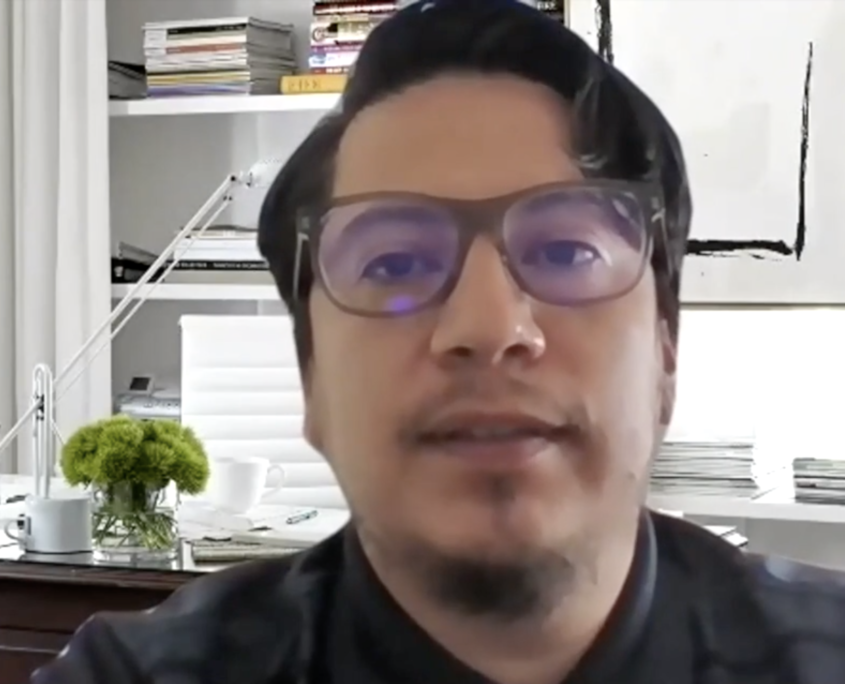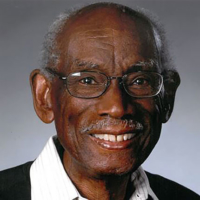By Les Dunseith
One of NBA coach Steve Kerr’s oldest memories occurred in the early 1970s when he attended his first NCAA basketball game at Pauley Pavilion with his father, then a UCLA professor. It was the heyday of UCLA men’s basketball, when the Bruins rolled through season after unbeaten season on the way to 10 championships in 12 years. The opponent was highly ranked Maryland.
“I was 6 or 7 years old, and UCLA wins the game by one point. The place is electric. Every seat is sold, and it’s an incredible game,” Kerr remembered, telling the story Oct. 7 during a webinar hosted by UCLA Luskin. “There’s all these All-American players on the court, and I’m thinking, you know, that was amazing!”
As he exited the arena with his father, Malcolm Kerr, they overheard Bruin fans complaining about UCLA’s performance. “What’s wrong with the team?” the fans said. “We only won by one point.”
Young Steve stopped suddenly. “‘But dad, we won?’ And my dad had to say, ‘Well, son, I’m going to have to teach you about context.’”
When a team wins championships, “fans are not just interested in winning, they’re interested in how they win and how dominant they look,” Kerr told an online audience of about 200 students, alumni, faculty, staff and other invited guests while helping the Luskin School celebrate a new academic year. Dean Gary Segura moderated the talk, which touched on Kerr’s role as a player, coach and outspoken advocate for social justice.
Understanding expectations has meaning for Kerr in his role as head coach of the Golden State Warriors, a team that went to the NBA finals five years in a row, winning three championships, before finishing the most recent season with the worst record in the league amid injuries and player departures.
Moving forward, Kerr can draw inspiration from his interactions with a who’s who of coaching role models from college and professional basketball, starting with John Wooden. During his father’s 20 years as a political science professor at UCLA, Steve got to know Wooden, and even served as a ball boy for the Bruins when he was 13 and 14 years old.
“I have [Wooden’s] photo hanging on the wall at my office in San Francisco,” Kerr said during the audience Q&A portion of the webinar. “He is one of the people I really admire and look up to as much as anybody — not only in the basketball world, but just in terms of people who have impacted me and the way I try to coach.”
Kerr’s Bruin connections run deep. So why didn’t he play for UCLA?
“I would have if they had wanted me,” Kerr said, laughing. “I’ll just say I was a late bloomer” — a statement borne out during his days as an NBA player when he earned five championship rings and set a still-unmatched record for career 3-point shooting success.
Kerr ended up playing college ball at the University of Arizona, where he learned from another great coach, Lute Olson.
“Coach Olson really kind of set the stage for my entire career,” Kerr said. “You’re so impressionable at that age, and to learn from one of the great coaches and to feel that presence — in that structure and with that wisdom — every day was incredible.”
This was in the 1980s, a couple of years after Malcolm Kerr had left UCLA to become the president of American University in Beirut. Then, during Steve’s freshman year at Arizona in 1984, Malcolm Kerr was killed on the Beirut campus by two gunmen. “He was one of the early victims of Middle East terrorism,” Kerr said. “And, obviously, it was a devastating time for our family.”
Steve Kerr is active today in efforts to prevent gun violence and provide guidance to troubled youth. But he doesn’t see the tragedy as the defining moment in shaping his worldview and that of his siblings.
“It was the way we were raised,” Kerr said, reflecting on his upbringing on and around the UCLA campus. “My mom and dad always exposed us to a lot of people from all over the world.”
His mother, Ann Kerr, has worked at UCLA since 1991 and still coordinates the Visiting Fulbright Scholar Enrichment Program for the International Institute. His siblings include John, who teaches at Michigan State University; Susan, an author and an elected county councillor in Great Britain; and Andrew, a businessman working in Washington, D.C.
Steve Kerr played pro basketball, then became a sportscaster and later a coach.
“I was definitely kind of the black sheep of the family. My siblings have all pretty much gone on to various educational endeavors. My mom likes to say that she has two Ph.D.s, an M.B.A. and an NBA,” Kerr joked.
Then again, Kerr’s job involves helping a group of people to learn and work together to achieve a goal. “Coaching is just teaching,” Kerr said. “It dawned on me after a while that I actually wasn’t as big of a black sheep as I thought I was.”
Few athletes have careers as varied or successful as Kerr, an eight-time NBA champion — five as a player on the Chicago Bulls and San Antonio Spurs, and three as coach of the Warriors.
In Chicago, he played for another legendary coach, one known for then-unusual tactics like meditating before games. “Phil Jackson taught me that you can be totally unique — and even weird — and be an incredible basketball coach.”
In San Antonio, he played for Gregg Popovich, who remains a close friend and mentor and is “just an incredible human being.”
“He’s the one who taught me … not to be afraid to speak out,” said Kerr in reference to his own reputation as an outspoken advocate for progressive political viewpoints.
During the webinar, Kerr answered questions about basketball:
- Could he beat Steph Curry in a game of H-O-R-S-E? “In theory, yes, but probably not.”
And he answered questions about his life:
- Would he ever consider a run for public office? “No. I’m a basketball coach and that’s what I love to do.”
But Kerr and the dean spent a good portion of their hour together talking about societal issues, the sorts of things that are on the minds of the faculty, students and alumni of a school that educates future social workers, urban planners and policy experts.
So, what’s getting him hot under the collar lately?
“Well, voter suppression is probably the thing that makes me the angriest right now,” Kerr responded. “We have this country that we all want to believe in. And we want to believe in the words that were written in the Constitution, and the words that were uttered by our founding fathers.”
But, to Kerr, people need to recognize the “parallel universe” that was often hidden beneath the surface of the American ideal.
“This parallel universe has existed from Day 1 in this country — where slavery existed and Black people were considered to be three-fifths of a human being in the Constitution,” Kerr told Segura. “What this social movement is about right now is trying to reconcile these parallel universes. How can we be so proud of our country and so thankful, and yet at the same time really be staring at some of the things that are still going on like … voter suppression? It’s really disheartening.”
The 2019-20 NBA season was suspended for months because of COVID-19, then restarted amid protests about anti-Black violence by police. When play resumed, coaches and players let their views be known, such as wearing slogans in support of racial justice on their uniforms.
“I’m very proud that the NBA has taken a leadership role with this issue,” Kerr said.
During a 15-year playing career that spanned all of the 1990s, Kerr was on teams with some of the most famous basketball players of all time. Circumstances, he noted, have changed.
“Social media didn’t exist. And so somebody like Michael Jordan, for example, rarely spoke out about politics or social issues. But at the same time, he wasn’t really asked, and that’s the biggest difference,” Kerr noted.
Kerr singled out Andre Iguodala, a former Warrior who is now with the Miami Heat, as a current player whose activism has been influential for him.
“I had one of the most meaningful conversations I’ve ever had on race with Andre,” Kerr said, recalling a chat at the team’s practice facility about how white America can be oblivious about reconciling with the nation’s past.
“Andre, he just said, very matter of factly, ‘Coach, have you ever heard about Black Wall Street?’”
Kerr had not, so he went online to learn the horrific story of the 1921 massacre of Black residents by a white mob in the Tulsa, Oklahoma, suburb of Greenwood, known as the Black Wall Street because of the relative wealth of many of its residents.
The tragic nature of the story isn’t the only reason this incident is significant to Kerr, who “has read a lot of books about history and thoroughly enjoyed American history classes in high school and college, and was a history minor in college. Not one person ever taught me about the Tulsa race riots.”
For Kerr, the son of educators and the recipient of wisdom from legendary coaches known not just for winning games but for shaping young lives, the path ahead is clear.
The tragedy of Black Wall Street “should be an entire chapter in every high school student’s textbook,” Kerr said. “We have to face what we’ve done, and the evils and the awfulness that has existed.”
Watch the webinar.
 — Helmut Anheier
— Helmut Anheier 

